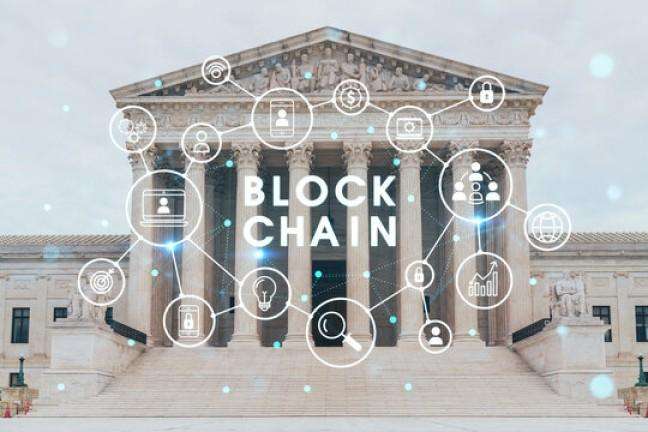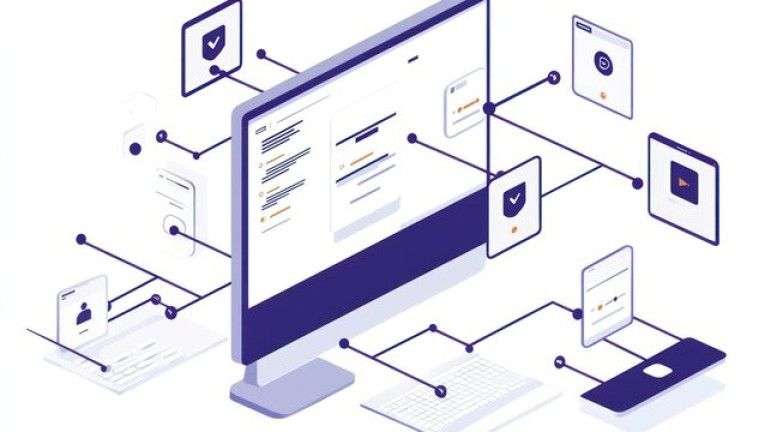When I first encountered the term “Abra Blockchain,” I quickly realized it wasn’t just another buzzword. It’s a technology that has the potential to shape the future of financial transactions and beyond. In this article, I want to share my exploration of Abra Blockchain, examining its underlying principles, how it works, and the impact it may have on various industries.
Table of Contents
What is Abra Blockchain?
Abra Blockchain is a cutting-edge, decentralized ledger system designed to offer an array of solutions for financial transactions, data integrity, and security. As a blockchain platform, it shares many similarities with other blockchain technologies such as Ethereum and Bitcoin, but it also has some distinct characteristics that make it stand out. Abra’s primary goal is to provide a user-friendly platform for conducting financial transactions without the need for traditional intermediaries like banks.
The platform operates on a distributed network of computers that collectively maintain a shared, immutable ledger of transactions. These transactions are encrypted and processed through smart contracts, which automatically execute predefined actions when certain conditions are met. The result is a more efficient and secure way of transferring value and managing digital assets.
How Does Abra Blockchain Work?
At its core, Abra Blockchain works by recording transactions on a decentralized ledger, which is essentially a database spread across many computers. Each transaction is grouped into a “block,” which is then added to the chain of previous blocks. This structure makes it nearly impossible to alter or delete data once it’s been added to the blockchain, ensuring a high level of security.
Here’s a simplified breakdown of the key components that make Abra Blockchain work:
- Decentralized Ledger: The blockchain is not controlled by a single entity but is instead maintained by a network of computers (nodes). Each node has a copy of the entire blockchain, and any changes must be validated by consensus from the majority of nodes in the network.
- Smart Contracts: These are self-executing contracts where the terms of the agreement are written directly into the code. For example, a smart contract might automatically transfer funds from one party to another when certain conditions are met, without needing an intermediary.
- Cryptography: Abra Blockchain uses advanced cryptographic techniques to ensure the privacy and integrity of transactions. This makes it highly secure and resistant to tampering.
- Consensus Mechanism: To add a new block to the chain, the network participants must agree on the validity of the transaction. Abra Blockchain uses a consensus mechanism known as Proof of Stake (PoS), which is more energy-efficient than the Proof of Work (PoW) used by Bitcoin.
Key Features of Abra Blockchain
Abra Blockchain is designed with several key features that make it appealing to both individual users and businesses. These features include:
- Scalability: Unlike many traditional blockchain systems, Abra Blockchain is designed to handle a high volume of transactions without compromising performance. This makes it ideal for businesses that need to process large amounts of data.
- Low Transaction Fees: One of the significant advantages of using Abra Blockchain is its low transaction fees. Traditional financial systems often involve multiple intermediaries, each taking a cut of the transaction. With Abra Blockchain, there are fewer intermediaries, which means lower fees.
- Security: Abra Blockchain employs advanced encryption and decentralized validation to ensure that transactions are secure. Once a transaction is recorded on the blockchain, it cannot be altered or deleted, making it tamper-proof.
- Transparency: Because the blockchain is decentralized, all transactions are visible to anyone who has access to the network. This transparency can help reduce fraud and increase trust in the system.
- Smart Contract Automation: Abra Blockchain allows for the creation and execution of smart contracts, which automate transactions based on predefined conditions. This can reduce the need for manual intervention and streamline business processes.
Benefits of Abra Blockchain for Businesses
For businesses, Abra Blockchain presents a wide range of potential benefits. It can help companies reduce operational costs, increase efficiency, and improve security. Below are some examples of how businesses can leverage Abra Blockchain:
- Supply Chain Management: Companies can use Abra Blockchain to track goods as they move through the supply chain. By recording every step of the process on the blockchain, businesses can ensure that products are sourced ethically, shipments are on time, and quality standards are met.
- Cross-Border Payments: Abra Blockchain allows for fast and low-cost cross-border payments. This is particularly useful for businesses that deal with international clients or suppliers. Traditional cross-border payments often involve high fees and long processing times, but with Abra Blockchain, transactions can be completed in a matter of minutes.
- Tokenization of Assets: Abra Blockchain can be used to tokenize real-world assets like real estate, stocks, or even fine art. Tokenization allows businesses to represent these assets digitally, making them easier to trade and transfer.
- Decentralized Finance (DeFi): Abra Blockchain supports decentralized finance applications, which allow businesses and individuals to access financial services without relying on traditional banks. This can open up new opportunities for businesses that are underserved by the traditional financial system.
Comparing Abra Blockchain to Other Blockchain Platforms
It’s helpful to understand how Abra Blockchain compares to other popular blockchain platforms, such as Ethereum and Bitcoin. Let’s look at some key differences:
| Feature | Abra Blockchain | Bitcoin | Ethereum |
|---|---|---|---|
| Consensus Mechanism | Proof of Stake (PoS) | Proof of Work (PoW) | Proof of Stake (PoS) |
| Transaction Speed | High | Low | Moderate |
| Scalability | High | Low | Moderate |
| Transaction Fees | Low | High | Moderate |
| Energy Efficiency | High | Low | High |
| Smart Contracts | Yes | No | Yes |
As the table shows, Abra Blockchain’s use of Proof of Stake and its focus on scalability and low fees make it a highly efficient and cost-effective alternative to Bitcoin and Ethereum. While Bitcoin remains the most well-known cryptocurrency, Abra Blockchain offers a more sustainable and scalable solution for many businesses.
Use Cases of Abra Blockchain
Abra Blockchain is not limited to financial transactions. There are many other industries that can benefit from its capabilities. Below are some key use cases:
- Healthcare: Abra Blockchain can be used to store and share medical records securely. Because the blockchain is immutable, it ensures that medical records cannot be tampered with. Additionally, it can provide patients with more control over their data, allowing them to share their medical information with authorized providers securely.
- Voting Systems: The transparency and security of Abra Blockchain make it an ideal platform for digital voting. By using the blockchain, we can create tamper-proof voting systems that ensure the integrity of elections.
- Intellectual Property Protection: Artists, musicians, and content creators can use Abra Blockchain to protect their intellectual property. By recording their work on the blockchain, they can prove ownership and prevent unauthorized use.
- Real Estate: Abra Blockchain can simplify the process of buying and selling real estate. It can be used to create digital property titles, reducing the need for paper-based documentation and ensuring that ownership records are secure and transparent.
- Insurance: Insurance companies can use Abra Blockchain to streamline claims processing. By recording claims on the blockchain, insurers can reduce fraud and ensure that claims are processed quickly and accurately.
The Future of Abra Blockchain
As I continue to explore the potential of Abra Blockchain, I can’t help but feel that it’s just the beginning. The technology is still in its early stages, but its ability to offer secure, transparent, and cost-effective solutions positions it as a major player in the future of digital transactions.
The future of Abra Blockchain is closely tied to the growth of decentralized finance (DeFi) and the increasing demand for secure, borderless financial systems. As more businesses and individuals adopt blockchain technology, I believe we’ll see even more use cases emerge. Whether it’s in supply chain management, healthcare, or digital identity, Abra Blockchain has the potential to disrupt many industries.
Conclusion
In conclusion, Abra Blockchain offers a compelling solution for businesses and individuals looking to take advantage of the benefits of blockchain technology. From its low transaction fees and high scalability to its focus on security and transparency, Abra Blockchain is positioned to be a key player in the digital economy. As the technology continues to evolve, I expect to see even more innovative use cases emerge, making Abra Blockchain a cornerstone of the next generation of decentralized systems.
Whether you’re a business owner, investor, or simply someone interested in the future of blockchain, Abra Blockchain is definitely a technology worth keeping an eye on.





